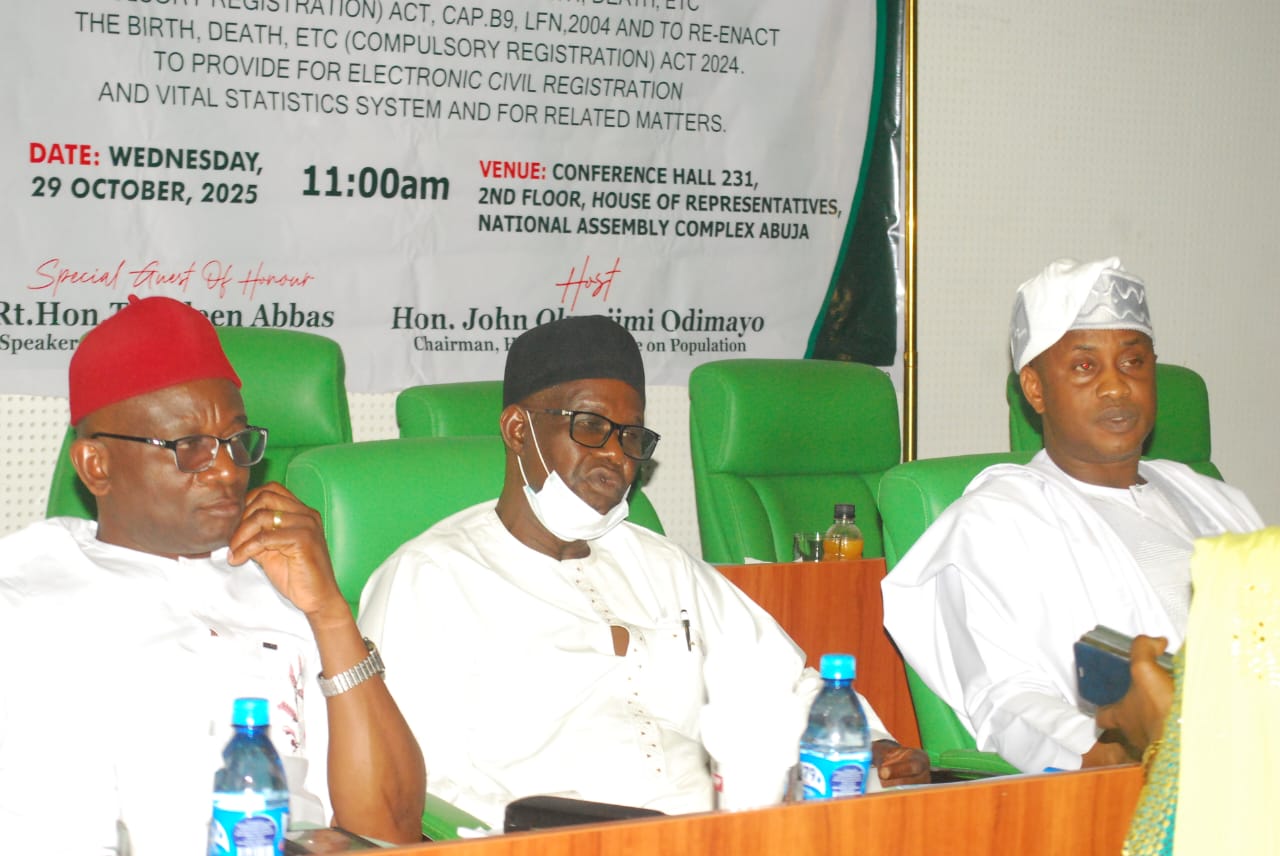Speaker Abbas has called for the adoption of a modern, technology-driven system for the registration of births, deaths, and marriages

The Speaker of the House of Representatives, Rep. Abbas Tajudeen, has called for the adoption of a modern, technology-driven system for the registration of births, deaths, marriages, and other vital events, describing accurate data as the foundation of effective national planning and governance.
Declaring open a public hearing on the bill to repeal and re-enact the Births, Deaths, etc. (Compulsory Registration) Act, Abbas—represented by Rep. Godwin Offiono (PDP Cross River), said the proposed legislation seeks to modernise Nigeria’s civil registration system through an electronic framework for collecting and managing vital statistics.
“Accurate and timely registration of births, stillbirths, deaths, marriages, and other vital events is essential for national planning, social development, and good governance,” Abbas stated. “The current Act was made for a different era—one without digital tools or modern data systems.”
The speaker noted that Nigeria’s social and demographic realities have evolved, with rapid population growth, migration, and increasing demand for data-driven policymaking, making it imperative to align the nation’s registration system with international best practices and United Nations standards.
He added that the electronic registration framework would help eliminate duplication and fraud, strengthen identity management, and enhance access to certificates across all regions.
“An electronic civil registration system will ensure the accuracy and integrity of vital data, reduce duplication and fraud in identity systems, and improve access to birth and death certificates nationwide,” Abbas emphasized.
Obsolete legal framework
Chairman of the House Committee on Population, Rep. Odimayo Okunjimi (APC, Ondo), said the existing legal framework for civil registration is obsolete and incapable of supporting the needs of a digitally driven society.
“Without reliable civil registration and vital statistics, the nation cannot effectively plan or deliver social services,” Rep. Okunjimi said. “This bill will establish a unified, modern system that reflects today’s realities and future needs.”
He explained that the current Act was designed for a time when population mobility, digital recordkeeping, and demographic planning were rudimentary, leaving Nigeria with weak data integration and limited infrastructure for secure and accessible recordkeeping.
According to him, the proposed legislation aims to establish a unified national system for the registration of births, deaths, marriages, divorces, adoptions, and other vital events, while clearly defining institutional responsibilities for coordination among the National Population Commission (NPC), state registries, local government councils, and relevant ministries.
“The reform of Nigeria’s vital registration system is not just a bureaucratic exercise but a national imperative,” Rep. Okunjimi stressed. “Modernising this Act will strengthen identity management, improve governance, enhance national security, and build a data-driven foundation for sustainable development.”
NPC backs digital reform
In his remarks, the Federal Commissioner representing Adamawa State in the National Population Commission (NPC), Mr. Clifford Zirra, commended the House committee for its initiative, describing the proposed amendments as timely and necessary.
“These amendments could not have come at a better time than now as the Commission seeks to mainstream technology and digital devices in the provision of its services,” Zirra said.
“They will provide interoperable digital platforms that enable collaboration with sister government agencies and partners, and bridge the gaps observed in implementing these legislations over the last three decades.”
Zirra disclosed that the NPC, with support from UNICEF and private consultants, had been actively involved in reviewing the bill to ensure a comprehensive and technology-friendly framework that consolidates the National Population Act with the Births, Deaths, etc. (Compulsory Registration) Act.
He expressed confidence that the reform would eliminate duplication, enhance clarity, and facilitate more effective implementation of the Commission’s mandate.
Towards a data-driven future
The committee’s legal consultant, Ms. Celestial Nwabueze, noted that the bill aligns with international best practices and establishes a solid legal foundation for an efficient civil registration and vital statistics (CRVS) system in Nigeria.
If passed, the bill will replace outdated laws, create a national digital registry, and strengthen Nigeria’s capacity for data-driven development, social service delivery, and security planning.

